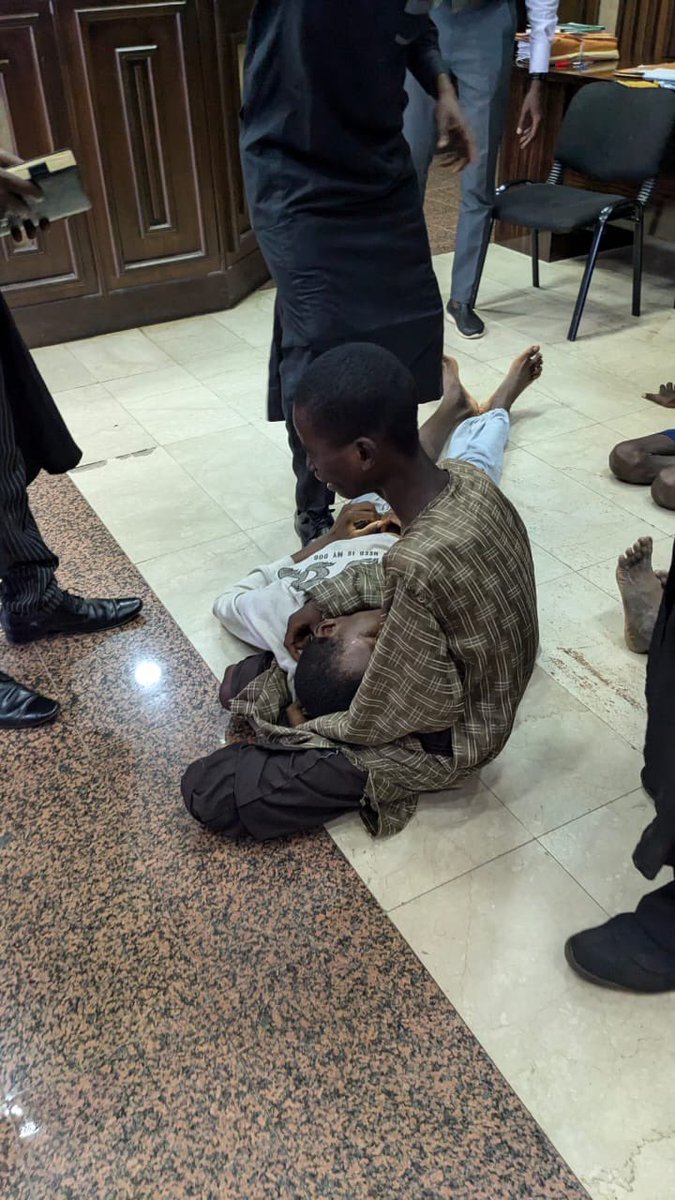President Bola Tinubu has issued an order for the immediate release of minors detained for their involvement in recent nationwide protests against poor governance.
The protests, tagged EndBadGovernance, erupted across several states, with citizens voicing frustration over economic hardship and government policies. Among those arrested were 72 minors who appeared in court last week, prompting widespread outrage after photos circulated showing many of the children in visibly poor health.
Speaking to State House correspondents on Monday, the Minister of Information and National Orientation, Mohammed Idris, announced the President’s directive.
Idris revealed that Tinubu’s decision followed the Senate’s approval of seven new ministers earlier that day.
The Minister noted, “President Tinubu has ordered the immediate release of these minors without prejudice to any ongoing legal proceedings.”
The President’s directive includes provisions for the welfare of the children, many of whom have been separated from their families and subjected to harsh conditions. Tinubu has instructed the Ministry of Humanitarian Affairs and Poverty Reduction to ensure the minors are safely returned to their families.
Furthermore, Tinubu ordered the establishment of a committee led by the Ministry of Humanitarian Affairs to investigate the circumstances surrounding the minors’ arrest, detention, and treatment.
“This committee will assess every aspect of their detention,” Idris stated. “It is essential that these children are treated with dignity, and that their reunion with their families is facilitated as soon as possible.”
The controversy surrounding the detention of the minors escalated last Friday when they were brought before a Federal High Court in Abuja. The 72 young defendants, some appearing visibly gaunt and weak, faced charges that included treason. Images of the court proceedings, showing some of the children collapsing due to apparent malnutrition and exhaustion, sparked a wave of anger among Nigerians.
Judge Obiora Egwuatu, who presided over the case, granted bail to the minors, setting the amount at N10 million. However, the costly bail condition further fueled criticism, as many families lack the means to meet such high demands.
The arrests took place in multiple states, including Kaduna, Abuja, Gombe, Jos, Katsina, and Kano. Despite the severe accusations against them, the minors’ involvement in the protests highlighted the increasing desperation felt by many Nigerian citizens facing economic hardship.
Meanwhile, Idris assured Nigerians that President Tinubu remains committed to addressing the root causes of the protests, particularly those linked to economic pressures exacerbated by the recent fuel subsidy removal.
Idris remarked, “President Tinubu is determined to ease the suffering of Nigerians. The removal of the subsidy, while painful, was necessary because it only benefited a few at the expense of the majority.”
The Minister spoke at a radio program in Kaduna, where he acknowledged the hardships the policy change has brought, while emphasizing that the government’s economic plans aim to bring stability and growth.
“No government desires backwardness,” Idris stated. “What needs fixing in this country is not solely the responsibility of the National Assembly or the executive branch. Every Nigerian has a role to play in bringing about the change we seek.”
In response to public frustration over government expenses, President Tinubu recently directed all ministers to cut costs by reducing their use of official vehicles and limiting the size of their entourages.
According to Idris, the President’s cost-cutting directive is intended to reduce the financial burden on the government and demonstrate accountability to the public.
“Every step counts in the journey to economic recovery,” Idris added. “The President understands the urgency of the situation, and his directives reflect his commitment to transparency and responsible governance.”
This move comes as the country continues to grapple with widespread discontent over rising living costs and declining purchasing power. For many Nigerians, the case of the detained minors has become symbolic of the struggles that millions face in their daily lives.

